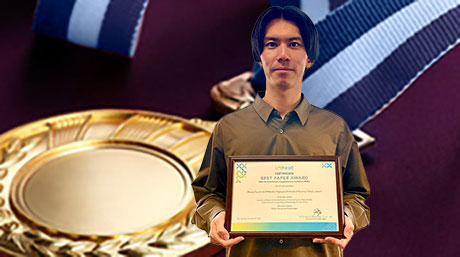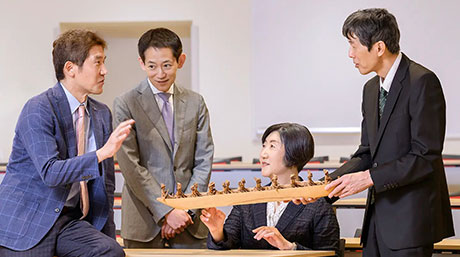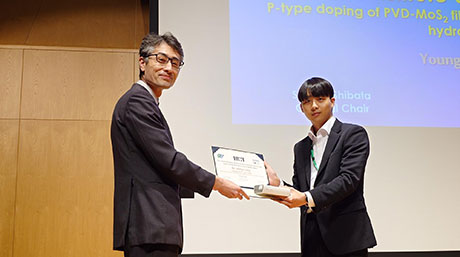Electrical and Electronic Engineering News
Research video: Highly reliable DC transmission system for large-scale adoption of offshore wind power generation
Researchers at Tokyo Institute of Technology are making strides in numerous fields, including environmental science, information engineering, electrical engineering, and the life sciences. Tokyo Tech has launched a series of short videos to showcase their research. Tokyo Tech Tenure-Track Faculty member, Assistant Professor Kenichiro Sano of the School of Engineering, has been researching and developing direct current (DC) transmission systems using long-distance submarine cables so that offshore wind-generated power from power generation sites can reach users in a stable manner. A video introducing his research has been published, highlighting the potential and possible issues of offshore wind power generation. (Video length: About 4 minutes)
Social Background and Overview of Research
In October of 2020, the Japanese Government declared its goal of achieving carbon neutrality by 2050. In Japan, fossil fuels such as coal, oil and natural gas, which are key sources of energy, are imported from overseas. If renewable energy utilizing the natural environment such as photovoltaic and wind power generation can be implemented on a large scale in the future, it would greatly contribute to carbon neutrality. However, in addition to the well-known issue of reducing power generation costs, there is also the issue of transmitting power long distances from areas with abundant power generations to areas with high demand.
Assistant Professor Sano has been focusing on a DC power transmission method for long-distance transmission of electricity. Using DC would allow for the transmission of electricity over long distances via submarine cables, which would reduce equipment costs and making it a major merit for implementing large-scale offshore wind power generation. On the other hand, alternating current (AC) is commonly used for overland power transmission, and the power we normally use is transmitted using this method. Wide-area power transmission networks are expected to be established that combine existing power transmission networks that are based on AC with undersea cables that use DC for power transmission, making it suitable for renewable energy. The aim of this study is to establish a highly reliable DC-AC power-supply system without power interruptions caused by a chain of faults, while also helping to making renewable energy more widely available.
- Dr. Kenichiro Sano | Power Electronics Laboratory
- Power Electronics Laboratory
- Kenichiro Sano | Researcher Finder - Tokyo Tech STAR Search
- Japan’s Roadmap to "Beyond-Zero" Carbon
- Electrical and Electronic Engineering Graduate Major |Education|Department of Electrical and Electronic Engineering, School of Engineering
- Energy Science and Engineering Graduate Major |Education|Department of Electrical and Electronic Engineering, School of Engineering
- Electrical and Electronic Engineering Undergraduate Major |Education|Department of Electrical and Electronic Engineering, School of Engineering
School of Engineering
—Creating New Industries and Advancing Civilization—
Information on School of Engineering inaugurated in April 2016
Contact
Public Relations Division, Tokyo Institute of Technology
Email media@jim.titech.ac.jp
Tel +81-3-5734-2975






